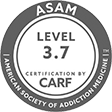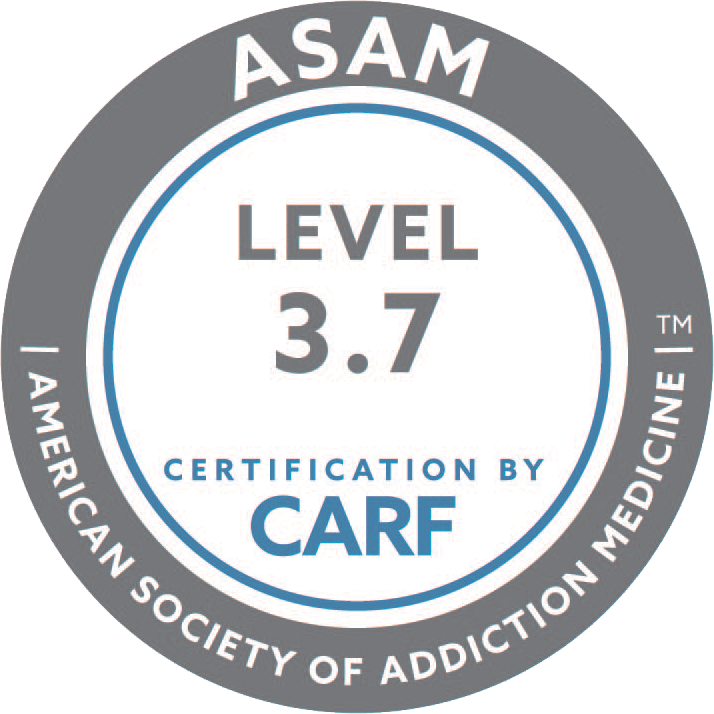Welcome to our comprehensive guide on the types of amenities offered at rehab centers. If you or a loved one is seeking treatment for addiction, finding a reputable rehab center in Los Angeles is crucial. Not only does the location play a role in your recovery journey, but the amenities offered can also greatly impact your overall experience and success in treatment. In this article, we will explore the various types of amenities that are available at rehab centers, and how they can contribute to your healing process. So sit back, relax, and let us guide you through this important aspect of choosing a rehab center.
First and foremost, it’s important to understand the difference between inpatient and outpatient rehab programs. Inpatient programs involve staying at the rehab center for a set period of time, typically 30-90 days, while receiving 24/7 care and support. This type of program is best for individuals with severe addictions or those who require a more structured environment.
Outpatient programs, on the other hand, allow individuals to live at home while attending therapy sessions and other activities at the rehab center. This option may be more suitable for those with milder addictions or who have already completed an inpatient program.
Next, let’s discuss the importance of detox programs. Detoxification is the process of ridding the body of drugs or alcohol and can often be a difficult and uncomfortable experience. Many rehab centers offer medically supervised detox programs, which provide medical care and support to help manage withdrawal symptoms. This can greatly increase the chances of a successful recovery as it helps individuals safely and comfortably transition into sobriety.
Aside from inpatient and outpatient programs, rehab centers also offer a variety of therapies and support groups to help individuals maintain their sobriety after completing treatment. These can include individual therapy, group therapy, family therapy, and support groups such as Alcoholics Anonymous or Narcotics Anonymous. These services are crucial for ongoing support and to help prevent relapse.
It’s worth noting that some rehab centers may also offer additional amenities such as yoga or meditation classes, nutrition counseling, and recreational activities. These can be beneficial for overall wellness and can help individuals develop healthy habits for a successful recovery.
Therapies and Support Groups
When seeking treatment for addiction at a rehab center, it’s important to consider the various therapy options and support groups offered. These services play a crucial role in helping individuals achieve and maintain sobriety. In Los Angeles, rehab centers offer a variety of therapy options such as individual counseling, group therapy, and cognitive behavioral therapy (CBT). These therapies can help individuals address underlying issues that may be contributing to their addiction, develop healthy coping mechanisms, and learn how to avoid relapse. Additionally, support groups such as Alcoholics Anonymous (AA) and Narcotics Anonymous (NA) provide a sense of community and ongoing support for individuals in recovery. These groups offer a safe space for individuals to share their experiences, receive guidance from others who have gone through similar struggles, and stay accountable in their sobriety journey. It’s important to explore the therapy and support group options offered at rehab centers in Los Angeles to find the best fit for your individual needs.
Inpatient vs. Outpatient Programs
When it comes to rehab programs, there are two main types: inpatient and outpatient. Each program offers unique benefits and is designed for individuals at different stages of their recovery journey.
Inpatient programs are residential treatment programs that require patients to live at the rehab center for a set period of time, typically ranging from 30 to 90 days. These programs provide 24/7 care and support, allowing patients to fully focus on their recovery without any distractions or outside influences. Inpatient programs are often recommended for individuals with severe addictions or co-occurring mental health disorders.
Outpatient programs offer more flexibility as patients do not have to stay at the rehab center. Instead, they attend therapy sessions and treatment programs during scheduled appointments while still being able to live at home. This option may be more suitable for those with milder addictions or who have already completed an inpatient program and are transitioning back into their daily lives.
It’s important to understand the differences between these two types of rehab programs in order to make an informed decision about which one is best for you or your loved one.
Additional Amenities
In addition to the essential amenities offered at rehab centers, there are also other services and facilities that can greatly aid in the recovery process. These amenities may vary from center to center, but they all aim to provide a well-rounded and supportive environment for individuals seeking treatment for addiction.
Nutritional Support: Maintaining a healthy and balanced diet is crucial for overall physical and mental well-being, especially during the recovery process. Many rehab centers offer nutritional support and education to help individuals develop healthy eating habits that can support their recovery journey.
Recreation and Physical Activities: Exercise and physical activities have been proven to be beneficial for mental health, as they release endorphins that can improve mood and reduce stress. Many rehab centers offer recreational activities such as yoga, hiking, and sports to help individuals incorporate physical activity into their daily routine.
Alternative Therapies: In addition to traditional therapy methods, some rehab centers may also offer alternative therapies such as acupuncture, equine therapy, or art therapy. These therapies can help individuals explore new ways to express themselves and cope with their emotions.
The Importance of Detox Programs
Detoxification, or detox for short, is an essential step in the recovery process for individuals struggling with addiction. It involves removing all traces of drugs or alcohol from the body and managing any withdrawal symptoms that may arise.
While the thought of detox may seem daunting, it is an integral part of the treatment journey. Here’s why detox is so important:
- Physical Safety: Detox programs are designed to safely manage the physical effects of withdrawal. This is especially crucial for individuals who are addicted to substances with severe withdrawal symptoms, such as alcohol or opiates.
- Medical Support: In a detox program, medical professionals are available 24/7 to monitor and manage any potential health complications during the withdrawal process. This ensures that individuals are receiving the necessary care and support to safely navigate this critical stage of recovery.
- Emotional Support: Detox programs also offer emotional support for individuals as they go through the physical and mental challenges of withdrawal. This can include therapy sessions, support groups, and other resources to help cope with difficult emotions.
Overall, detox is crucial because it sets a strong foundation for long-term recovery. By safely and effectively removing drugs or alcohol from the body, individuals can begin to address the underlying issues that led to their addiction and work towards a healthier, sober life.
Finding a reputable rehab center in Los Angeles is a crucial step towards overcoming addiction. By understanding the different types of amenities offered at these facilities, individuals can make an informed decision about which program is best suited for their needs. Whether it’s inpatient or outpatient treatment, detox services, or ongoing support through therapy and support groups, there are a variety of options available to help individuals on their journey to recovery.
Dr. Brooke Gilbertsen is a licensed clinical psychologist who has been working in the field of mental health since 2011 and specifically co-occurring disorders since 2013. Brooke brings her knowledge, experience, and compassion to support clients and their loved ones on their journey toward recovery, health, and holistic healing. Brooke has experience working with a wide range of diagnoses from severe mental illness and personality disorders to depression and anxiety, and believes the underlying cause must be treated in order for freedom from addiction to occur. Brooke treats the whole person, considering mental health diagnoses, genetics, neuropsychology, the context of the family and environment, social relationships, trauma and loss, vulnerability, shame, and self-worth. Brooke applies a wide range of evidenced-based modalities, incorporating mindfulness, spirituality, and psychodynamic approaches to assist clients in the healing process. Brooke is passionate about helping her patients discover the best version of themselves, with a renewed sense of freedom, purpose, and meaning. The model is to build a life that you want to show up to, and don’t need a vacation from.
Brooke completed her B.A. in Psychology in 2008 from San Diego State University. She obtained her M.A. Degree in Clinical Psychology in 2013 from Argosy University, and received her Doctorate in Psychology in 2016 from The Chicago School of Professional Psychology. She is the author of The Impact of Mindfulness on the Quality of Life of Cancer Patients, published in 2017. Brooke has been the keynote speaker for lectures on addiction, and is passionate about helping others find their way as they take the courageous journey toward self-growth.










